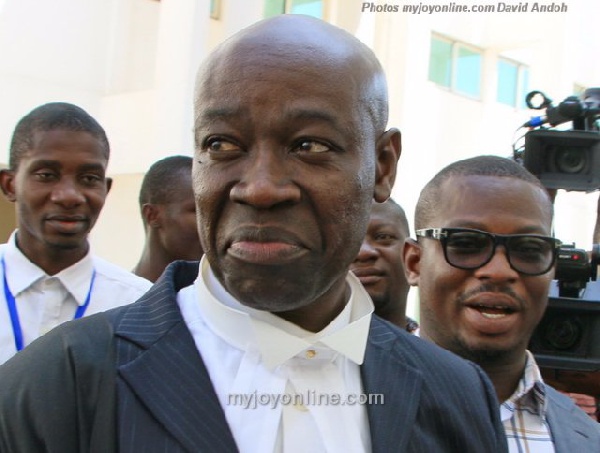Colleagues in the mass media, let’s dedicate our Saturday morning discussions to what I will, for present purposes, call the more serious matters.
By serious, I refer to issues that are undoubtedly important, but which have been unfairly downplayed or mischaracterized as trivial.
READ ALSO: Old Tafo MP files injunction against suspension of Chief Justice
There is far too much unnecessary noise around a constitutional provision that has been well ventilated by the Supreme Court across several decisions, and has been applied under the current President’s tenure — more than once.
Article 146 is not new. Its application is not novel. It has been invoked in multiple instances — well before the case of Charlotte Osei. In those instances, there was no uproar. The rule of law prevailed, justice was served, and the system worked. Now that the Judiciary — the same institution that has interpreted and applied this article — finds itself subject to the same rules, we must trust that justice will again prevail.
To now suggest manipulation, scheming, or political chicanery is to imply that previous applications of the same rule may also have been tainted. If this is what critics truly believe, then the current outrage is merely proof that earlier concerns were not just speculative, but credible.
So I ask:
Why is there an uproar over a rule we’ve seen applied before?
When it was applied in the past, was it not constitutional?
was justice not served?
Did we trust the process then?
If yes, why not now?
Is it because of who is involved, not what is involved?
Is this really about justice — or politics?
Let’s entertain a hypothetical: Even if this were part of some broader “resetting” agenda — we’ve seen dismissals that didn’t follow due process (remember Tamale?). Yet, in this case, the law is being followed, to the letter.
Isn’t that what we’ve always demanded?
a. Is it not the same Article 146 at work?
b. Is it not the same President under whose watch it has been applied before, without protest?
c. Is the President — or Asiedu Nketia — the petitioner in this case?
d. Are they members of the Council of State?
e. Will they sit on the committee adjudicating the matter?
Fortunately, the individual at the center of this furore has long been celebrated as a reformer and custodian of judicial integrity. She has presided over initiatives that, by all accounts, enhanced the efficiency and credibility of the justice system.
Only recently, many of those now raising alarm reminded us — quite forcefully — that only the judiciary delivers justice. That was their refrain. Are they now suggesting that the judiciary is only credible with the presence of one person? What has changed?
To dignify these current reactions with extended airtime is to lend weight to suspicions that have always existed — that the judiciary’s credibility has long been compromised, “never mind the clearing.”
Let’s not act like victims of a process we once upheld. Let’s not cry foul now that the very system we claimed to trust is doing its work. Let’s resist the temptation to behave like narcissists suddenly deprived of control.
Let us trust the process. We always have.
Samson Anyenini and Alfred Ocansey— Please do something more meaningful with JOynews/Joyfm Newsfile and The Key Points on TV3 on Saturday morning.
The writer is a legal practitioner in Ghana.
DISCLAIMER: The Views, Comments, Opinions, Contributions and Statements made by Readers and Contributors on this platform do not necessarily represent the views or policy of Multimedia Group Limited.


